Keynote talk #1
Title: Democratizing 6G – Diverse and Inclusive Approach to Next Generation Networking Innovations
Speaker: Akihiro Nakao, Professor in Applied Computer Science
Organization: Graduate School of Interdisciplinary Information Studies (GSII), University of Tokyo
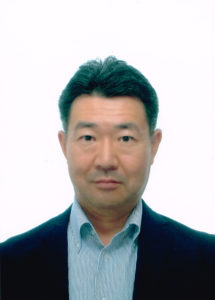 Bio:
Bio:
Akihiro Nakao received B.S.(1991) in Physics, M.E.(1994) in Information Engineering from the University of Tokyo. He was at IBM Yamato Laboratory, Tokyo Research Laboratory, and IBM Texas Austin from 1994 till 2005. He received M.S.(2001) and Ph.D.(2005) in Computer Science from Princeton University. He has been teaching as an associate professor (2005-2014) and as a professor (2014-present) in Applied Computer Science, at Interfaculty Initiative in Information Studies, Graduate School of Interdisciplinary Information Studies, the University of Tokyo. He concurrently serves as a special advisor to the president of the University of Tokyo as well as vice dean of Interfaculty Initiative in Information Studies, Graduate School of Interdisciplinary Information Studies, the University of Tokyo. He received many awards such as NTT Docomo Mobile Science Award (2017) IEICE Accomplishment Awards (2020), etc.
Abstract:
When we are to make revolutionary progress in anything, diversity and inclusiveness are crucial factors to consider involving everyone to invent the solutions to given challenges from all the aspects. Telecommunication should not be an exception. For the next-generation mobile networks, we posit that “democratization” — making the capability of providing the fundamental telecommunication service accessible to everyone, not just telecom operators and vendors, but the general public including academia, local governments, as well as non-telco industries— play a significant role in R&D of Beyond5G/6G. In Japan, while commercial 5G services have started, we have allocated white space to private/licensed 5G usage, (a.k.a. local 5G), and made it open to the general public so that they can operate their own customized 5G networks. The democratization in telecommunication such as local 5G will accelerate the customized use of the frequency bands tailored for enabling various use cases and resolving challenges that local regions are facing, which eventually leads to incubating the kernel technologies for Beyond5G/6G. In this keynote presentation, introducing local 5G activities in Japan that have caught very much attention from industries together with our lab’s research activities towards Beyond 5G/6G. We are paving the evolution avenue from local 5G to local 6G and then to public 6G.
Keynote talk #2
Title: SDN in the Last Mile: SEBA and SD-RAN
Speaker: Saurav Das, VP of Engineering
Organization: Open Networking Foundation (ONF)
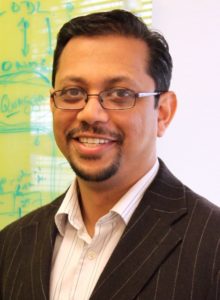 Bio:
Bio:
Over 20 years in networking & communications, Saurav has worked on systems as diverse as network virtualization at Big Switch Networks, datacenter switches at Arista, and WDM optics at Enablence. He currently serves as VP of Engineering at the Open Networking Foundation, where he leads the production development of solutions like SEBA, VOLTHA, SD-RAN, and Trellis in collaboration with Tier-1 operators like DT, Comcast, AT&T, and other partners. He was also part of the original team at Stanford that made SDN popular. His pioneering research on SDN in WANs proposed, demonstrated, and analyzed a converged IP/MPLS/Optical WAN architecturally based on SDN. He holds an MS from the University of Arizona and a Ph.D. in Electrical Engineering from Stanford University.
Abstract:
Over the last decade, SDN has enjoyed success in many areas of networking, and especially in datacenter networks. This talk focuses on bringing the economies of a datacenter and the agility of a cloud provider to carrier Access Networks, both in the wired (FTTH) Broadband space and the Mobile RAN space. In particular, the talk will update the attendees on two ONF projects that focus on these areas – SDN Enabled Broadband Access (SEBA) and Software Defined – Radio Access Networks (SD-RAN).
Keynote talk #3
Title: Vertical Edge Computing and Control Enabled by Large-Scale Deterministic Network
Speaker: David Lou, Chief Researcher
Organization: Huawei Technologies
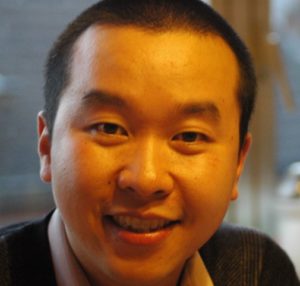 Bio:
Bio:
Dr. David Lou graduated as Ph.D. in Electronic Engineering at Ghent University in 2005. In the same year, he joined the Alcatel-Lucent Bell Labs as an Innovation Researcher. He had a leading involvement and management role in several European and national research projects (Giant, Smart Touch, Metaverse1, Mistra, Shift-TV, etc.), and standardization bodies (MPEG). In 2016 he joined Huawei Technologies as a Chief Researcher based in Munich, Germany. He is responsible for identifying high potential research directions, steering disruptive network innovation, and coordinating collaboration with industrial and academic partners. His research interests mainly covers IoT/IIoT/I4.0, next-generation industrial networking architecture, deterministic communication, video streaming and transportation, and immersive communication. He is the co-chair of the IIC Networking Task Group and has been actively involved in relevant standardization and industrial development activities. He has (co-) authored more than 30 scientific publications and white papers. He has been granted with more than 30 patents.
Abstract:
Edge computing is capable of performing much more extensive tasks than their less networked embedded predecessors. In the light of Industrial IoT (IIoT), devices, machines, and systems connected to IIoT are becoming significantly higher, and sometimes with extremely heterogeneous communication requirements. The IIoT Communication is a machine to machine communication, which is quite different from the human to human-centric communication the existing Internet was originally designed for. Privacy and security is one of the major concerns of the IoT communication as most of the communication will not be monitored or controlled by human being directly. High precision services are very essential in some of the edge computing/control systems where any interruption of the service will cause serious and non-affordable damages. Last but not the least, the interoperability among various IoT networks/systems remains a challenge. This presentation will contribute some initial thoughts and concepts trying to tackle the aforementioned challenges.
Keynote talk #4
Title: Serious science and serious engineering – The way of software-based network experimentation
Speaker: Diego R. López, Senior Technology Expert
Organization: Telefónica I+D
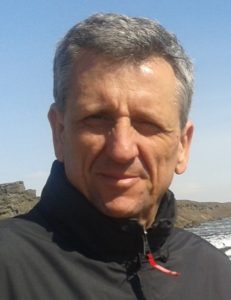 Bio:
Bio:
Diego R. López leads the Technology Exploration activities within the GCTIO Unit in Telefonica I+D. Before this position he spent some years in the academic sector, researching network services, and was appointed member of the European Commission’s High-Level Expert Group on Scientific Data Infrastructures. Diego currently focuses on applied research in network infrastructures, especially on virtualization, data-driven management, new architectures, and security. Diego chairs the ETSI ISGs on Network Function Virtualization and Permissioned Distributed Ledgers.
Abstract:
Experimental reproducibility is one of the key requirements for science and it has become harder and harder as network infrastructures and technologies have become more complex and pervasive. The recent application of software network principles (basically SDN and NFV, but data-driven management as well) can be used to enhance reproducibility and guarantee we all practice not only a much more serious science but to enhance engineering practices as well.
Keynote talk #5
Title: Software Reliability: A Case Study on Software Defined Networks
Speaker: Carmen Mas-Machuca, Chair of Communication Networks (LKN)
Organization: Technical University of Munich (TUM), Germany
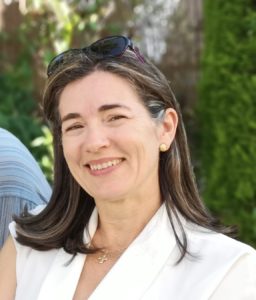 Bio:
Bio:
Carmen Mas-Machuca (M’96-SM’12) is a Privat Dozent/Adjunct Teaching Professor at the Chair of Communication Networks, Technical University of Munich (TUM), Germany. She received her Dipl.-Ing. degree (Master) from Universitat Politècnica de Catalunya (UPC, Spain) in 1995 and her Dr.-Ing. degree (Ph.D.) from École Polytechnique Fédérale de Lausanne (EPFL, Switzerland) in 2000. PD Dr.-Ing. Mas-Machuca has published more than 150 peer-reviewed papers. Her main research interests are in the area of techno-economic studies, network planning and resilience, SDN/NFV optimization problems, and next-generation converged access networks.
Abstract:
Communication networks are evolving towards softwarized networks. Hence, software reliability is becoming a crucial challenge. In this presentation, software failures will be introduced and classified. Different software prediction models will be presented and applied to SDN. It will be shown how the various SDN failures can be modeled and how different reliability metrics, such as software maturity, can be evaluated. Furthermore, a framework to evaluate and prevent software aging will be presented.


